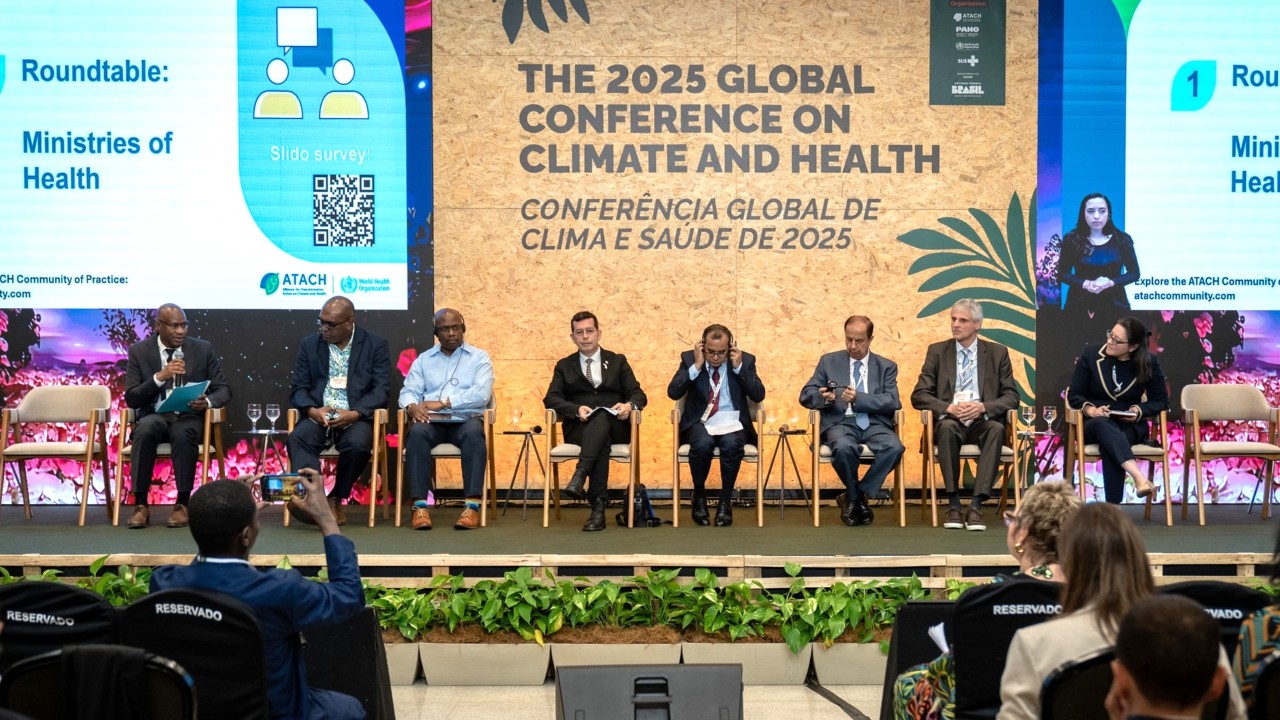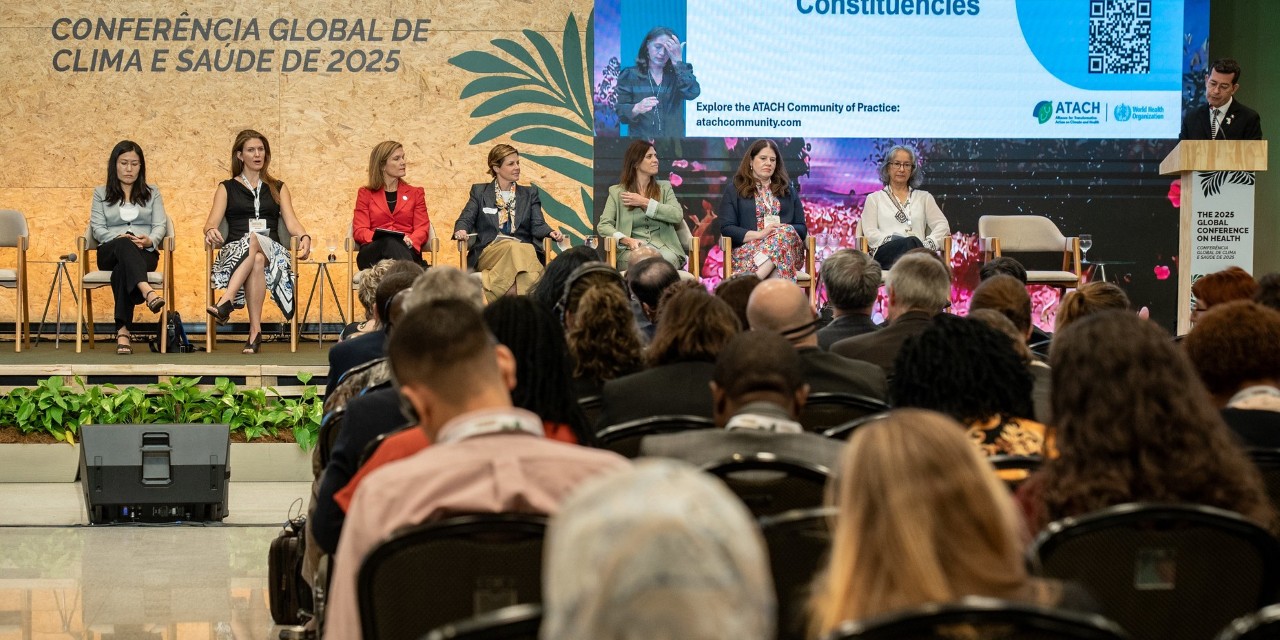
ATACH’s role in integrating public policy and NDCs
CLIMATE CHANGE
Expanding funding to tackle climate-related diseases was the main focus of the second day of discussions at the 5th Global Conference on Climate and Health in Brasília (DF)

By Leandro Molina / COP30 Brasil
The link between health and climate change has never been clearer. With the rise of extreme weather events such as heatwaves, floods, and prolonged droughts, health systems worldwide face unprecedented challenges. Climate change is associated with an increased incidence and spread of various diseases—both infectious and non-infectious—including vector-borne illnesses like dengue, yellow fever, and malaria.
On Wednesday, July 30, in Brasília, the Alliance for Transformative Action on Climate and Health (ATACH) emerged as a pivotal instrument for monitoring and implementing initiatives that integrate health and climate into countries’ National Adaptation Plans (NAPs) and Nationally Determined Contributions (NDCs). As COP30 approaches, set to take place in Belém, the discussion around this mechanism becomes increasingly relevant. At the 5th Global Conference on Climate and Health, country representatives said that health is expected to take center stage in climate negotiations.
Ms. Elena Villalobos Prats, coordinator of ATACH at the World Health Organization (WHO), emphasized the importance of keeping health as a top priority at climate conferences. “We’ve mobilized 50 partner countries to work on climate and health issues. Our focus is to ensure that action mechanisms are continuous and that health is integrated into sectors like finance and sustainable development,” she said.
Ms. Villalobos Prats pointed out that, although many countries include climate-sensitive diseases in their plans, these priorities often fail to translate into tangible policies. “ATACH convenes 95 countries and over 90 partners to promote the adoption of low-carbon, resilient health systems. However, it is crucial that the commitments made at COPs are supported by sufficient funding,” she added.
The Belém Health Action Plan—expected to be one of the COP30 legacies—is seen as an opportunity to consolidate these priorities. ATACH functions as a monitoring mechanism for this plan, ensuring that established targets are met. “What we want at COP30 is for health to become a driver for increased climate ambition—both in emission reduction and in adaptation,” Ms. Elena Villalobos said.
The integration of climate and health was also highlighted by Dr. Antonio Lampalavo, Minister of Health of Fiji, who drew attention to the challenges faced by vulnerable nations. “In Fiji, climate-related diseases are on the rise. We need to build resilience, translate strategies into actions, and anticipate health crises,” he explained. He stressed the importance of bringing data and experiences from forums like ATACH into COP negotiations, ensuring that health is treated as a cross-cutting agenda. “Participation in ATACH and mutual learning among countries are crucial to strengthening global health governance,” he added.
Similarly, Falko Drews, scientific advisor at the German Ministry of Health, emphasized ATACH’s role in coordinating international efforts. “Each country has its own reality, but platforms like this are essential to align visions and approaches. In Europe, for example, we have the European Partnership for Climate Action in the Health Sector, which complements ATACH’s work,” he said. Regarding expectations for COP30, Mr. Drews was optimistic: “We hope the event in Belém will be a decisive step toward a low-carbon world with health at the center.”

Accounts from different regions show that while challenges are common, solutions require cooperation. Hussain Alrand, Assistant Undersecretary for Public Health at the UAE Ministry of Health, warned of rising respiratory, cardiovascular, and mental health conditions due to climate change in his country. “We need behavioral change, domestic financing, and air pollution reduction,” he said. Meanwhile, Mamunur Rashid, Deputy Secretary at the Ministry of Health of Bangladesh, highlighted progress made in partnership with WHO, but noted that financing gaps still need to be addressed.
The road to COP30 is being paved with discussions like these, reinforcing the need for an integrated approach to climate and health. As Phillip Swann, Acting Director of Public Health in the Bahamas, put it: “Nationally Determined Contributions, which are our national adaptation plans, need to include not just climate data but also health indicators.” In this regard, ATACH serves as a bridge between global commitments and local action, ensuring that health is not left out in the fight against the climate crisis.
With Belém on the horizon, the expectation is that COP30 will mark a new milestone in incorporating health into NDCs. As Villalobos Prats concluded: “It’s not enough to include priorities in plans—we must guarantee the resources to implement them and promote fairer, more coordinated, and more efficient global governance.”
English version: Trad. Bárbara Menezes.
Proofreading by Enrique Villamil.

